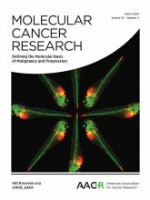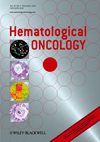
CELLULAR ONCOLOGY
Scope & Guideline
Fostering Global Collaboration in Oncological Science
Introduction
Aims and Scopes
- Tumor Microenvironment and Immunology:
Research exploring the interactions between tumor cells and their microenvironment, including immune cells, stromal components, and extracellular matrix, is a core focus. Studies examine how these interactions influence tumor progression, metastasis, and therapeutic responses. - Molecular Pathways and Targeted Therapies:
The journal highlights the identification and characterization of key molecular pathways involved in cancer biology. It covers research aimed at developing targeted therapies that exploit these pathways, including studies on gene expression, signaling networks, and resistance mechanisms. - Cellular Mechanisms of Cancer Progression:
CELLULAR ONCOLOGY publishes studies that elucidate the cellular mechanisms underlying cancer progression, including cell signaling, apoptosis, autophagy, and metabolic reprogramming. This includes investigations into how cancer cells adapt to survive and thrive in hostile environments. - Biomarker Discovery and Clinical Implications:
The journal emphasizes the discovery of biomarkers for cancer diagnosis, prognosis, and treatment response. Research that translates findings from laboratory studies to clinical settings, aiming to improve personalized medicine approaches, is particularly valued. - Innovative Therapeutic Strategies:
Research on novel therapeutic strategies, including immunotherapy, gene therapy, and combination treatments, is a major focus. The journal aims to showcase advancements in therapeutic approaches that enhance efficacy and reduce resistance in cancer treatment.
Trending and Emerging
- Immunotherapy and Immune Microenvironment Modulation:
There is a growing emphasis on immunotherapy, particularly studies investigating how to modulate the immune microenvironment to enhance anti-tumor responses. Research on immune checkpoint inhibitors and CAR-T cell therapies is increasingly prevalent. - Precision Oncology and Genomic Profiling:
The trend towards precision oncology is highlighted by studies utilizing genomic and transcriptomic profiling to inform treatment decisions. This includes identifying biomarkers that predict response to specific therapies, reflecting a personalized approach to cancer treatment. - Exosome and Extracellular Vesicle Research:
Research focusing on exosomes and other extracellular vesicles is on the rise, particularly regarding their roles in intercellular communication, drug delivery, and as biomarkers for cancer diagnosis and prognosis. - Metabolic Reprogramming in Cancer:
Emerging studies are increasingly exploring the role of metabolic pathways in cancer development and progression. Understanding how cancer cells reprogram their metabolism for survival and growth is gaining traction, with implications for therapeutic targeting. - 3D Culture and Organoid Models:
The use of 3D culture systems and organoids to study cancer biology and drug responses is trending. These models offer more physiologically relevant platforms for testing therapeutics and understanding tumor behavior compared to traditional 2D cultures.
Declining or Waning
- Traditional Chemotherapy Mechanisms:
Research specifically targeting traditional chemotherapy mechanisms has decreased, as the field increasingly shifts towards understanding targeted therapies and immunotherapy. Studies focusing solely on the mechanisms of classic chemotherapeutic agents are becoming less prominent. - Basic Cell Culture Studies:
Papers concentrating on basic in vitro cell culture studies without translational implications are less frequently published. The journal now favors studies that integrate clinical relevance and translational research, indicating a waning interest in purely foundational laboratory work. - Single Agent Drug Studies:
There is a noticeable decline in studies focusing on the effects of single-agent drugs in isolation. The trend is moving towards combination therapies and multi-target approaches, reflecting the complexity of cancer treatment and the need for more effective strategies. - Mechanistic Studies Without Clinical Context:
Research that explores cancer biology at a mechanistic level without linking findings to clinical outcomes or therapeutic implications has seen reduced emphasis. The journal prioritizes studies that can translate findings into clinical applications.
Similar Journals

MOLECULAR CANCER RESEARCH
Transforming Research into Revolutionary TreatmentsMOLECULAR CANCER RESEARCH, published by the American Association for Cancer Research, stands as a pivotal journal in the fields of cancer research, molecular biology, and oncology. With an impressive impact factor and recognized as a Q1 journal in its respective categories for 2023, it serves as an essential resource for researchers, professionals, and students aimed at advancing our understanding of cancer mechanisms and therapies. The journal, identified by the ISSN 1541-7786 and E-ISSN 1557-3125, provides a platform for cutting-edge research and clinical applications, emphasizing innovation and collaboration within the scientific community. With its focus on high-quality, peer-reviewed articles, MOLECULAR CANCER RESEARCH is vital for anyone looking to stay abreast of significant advancements in cancer biology and treatment strategies. For more details and to access the journal's content, please visit the publisher's link.

Cancer Research Communications
Innovating cancer treatment through shared insights.Cancer Research Communications is an esteemed journal published by the American Association for Cancer Research, a leading organization in the field of oncology. This journal aims to advance knowledge in cancer research through the dissemination of high-quality, peer-reviewed articles that cover a wide range of topics related to cancer biology, treatment modalities, and prevention strategies. As an open-access journal, Cancer Research Communications ensures that vital research findings are accessible to a global audience, promoting collaboration and innovation within the scientific community. The journal serves as a crucial platform for researchers, professionals, and students to share their insights and foster the exchange of effective cancer therapies and methodologies. With a commitment to excellence, it plays a significant role in shaping the future of cancer research and therapeutic development.

ONCOGENE
Empowering Researchers to Combat Cancer with KnowledgeONCOGENE is a premier peer-reviewed journal published by SpringerNature, serving as a crucial platform for innovative research within the fields of Cancer Research, Genetics, and Molecular Biology. With an impressive Impact Factor and a distinguished Q1 ranking across major categories, ONCOGENE publishes cutting-edge studies aimed at unraveling the complexities of cancer biology and genetic mechanisms. The journal has been a vital resource for the academic community since its inception in 1987, and it continues to foster rigorous scientific discussions and collaborations. Researchers, professionals, and students can access a wealth of critical insights and advances in cancer genomics and therapeutic approaches, cementing ONCOGENE’s role as a leading voice in the landscape of biomedical research. For comprehensive academic research, ONCOGENE remains an indispensable source of knowledge with contributions that significantly impact the evolution of cancer research and treatment strategies.

CELL PROLIFERATION
Advancing the Frontiers of Cellular ResearchCELL PROLIFERATION, published by Wiley, is a leading open-access journal that has been at the forefront of research since its inception in 1968. With an impact factor that solidifies its position in the Q1 category of both Cell Biology and Medicine (Miscellaneous), this journal serves as a premier platform for disseminating groundbreaking studies in the field of cellular and molecular biology. The journal is renowned for its rigorous peer-review process and comprehensive coverage of topics related to cell growth, division, and differentiation, making it an invaluable resource for researchers, professionals, and students alike. With its notable Scopus ranking of #30 in Biochemistry, Genetics, and Molecular Biology: Cell Biology, and a robust open access model since 2019, CELL PROLIFERATION ensures that cutting-edge research is accessible to a global audience, fostering collaboration and innovation across the scientific community. Located in the United Kingdom, the journal remains committed to enhancing the understanding of cellular processes, thereby influencing developments in medicine and biotechnology.

FEBS Journal
Where Innovation Meets Molecular InsightsFEBS Journal is a prestigious, peer-reviewed publication dedicated to advancing the field of biochemistry, cell biology, and molecular biology. Published by WILEY in the United Kingdom, this journal boasts an impressive impact factor and ranks in the top quartile (Q1) across multiple relevant categories, including Biochemistry, Cell Biology, and Molecular Biology, reflecting its significant contribution to scientific research. With an ISSN of 1742-464X and an E-ISSN of 1742-4658, the FEBS Journal publishes original research and comprehensive reviews that push the boundaries of knowledge and innovation in the biosciences. As a vital resource for researchers, professionals, and students alike, the journal offers Open Access options, ensuring that cutting-edge discoveries are accessible to a broad audience. With a publication history converging from 2005 to the present and a robust emphasis on high-quality scholarly work, the FEBS Journal remains an essential platform for the dissemination of significant findings and advancements in the life sciences.

Cancer Cell International
Transforming Knowledge into Cancer SolutionsCancer Cell International, published by BMC, is a transformative open-access journal established in 2001, dedicated to advancing the field of oncology and cancer research. With its ISSN number not specified and an E-ISSN of 1475-2867, the journal proudly operates from the United Kingdom, located at CAMPUS, 4 Crinan St, London N1 9XW, England. Renowned for its rigorous peer-review process, Cancer Cell International has made significant strides, securing a Q2 ranking in Cancer Research and Q1 rankings in both Genetics and Oncology as of 2023. It ranks impressively in Scopus, featuring in the top quintile of Genetics (#37/347) and Oncology (#52/404), indicating its importance within the scientific community. The journal's broad scope caters to a diverse array of topics within cancer biology, making it an invaluable resource for researchers, professionals, and students seeking to stay at the forefront of cancer science. With a commitment to disseminating high-quality research, Cancer Cell International invites scholars to explore innovative findings and contribute to the collective effort of combating cancer.

Trends in Cancer
Leading the Charge in Cutting-Edge Cancer DiscoveriesTrends in Cancer is a leading journal published by CELL PRESS, dedicated to advancing the field of cancer research and oncology. Since its inception in 2015, the journal has rapidly gained a reputation for excellence, securing both Q1 rankings in Cancer Research and Oncology categories for 2023 and boasting impressive Scopus ranks—#13 out of 404 in Medicine Oncology and #9 out of 230 in Biochemistry, Genetics and Molecular Biology, thus placing it in the top 4% of its field. The journal aims to publish high-quality, innovative research that offers new insights into cancer biology and treatment strategies. With a commitment to scholarly rigor and a broad scope that encompasses molecular mechanisms to therapeutic approaches, Trends in Cancer serves as an essential resource for researchers, professionals, and students eager to stay informed about the latest developments in cancer science. Although it is not an open-access journal, its contributions are pivotal in shaping the future of cancer research.

CELL RESEARCH
Pioneering Research for a Healthier TomorrowCELL RESEARCH is a premier peer-reviewed journal dedicated to advancing the field of cell biology and molecular biology, published by SpringerNature. With an impressive impact factor and consistently ranking in the Q1 quartile for both cell biology and molecular biology, this journal serves as a pivotal resource for researchers, professionals, and students seeking to explore the latest discoveries and advancements in cellular mechanisms and their implications for health and disease. Since its inception in 1996, CELL RESEARCH has cultivated a distinguished reputation, currently boasting ranks in the top percentile of Scopus categories, reaffirming its influence and relevance to the scientific community. Although it is not an Open Access journal, its rigorous selection process ensures the publication of high-quality articles that contribute significantly to our understanding of life sciences. For those deeply engaged in the realms of biochemistry, genetics, and molecular biology, CELL RESEARCH is an essential conduit of innovative research and critical insights.

TECHNOLOGY IN CANCER RESEARCH & TREATMENT
Pioneering the future of oncology with cutting-edge research.TECHNOLOGY IN CANCER RESEARCH & TREATMENT, published by SAGE Publications Inc, is a leading open-access journal dedicated to the intersection of technology and oncology. Since its inception in 2002 and with an impactful transition to open access in 2018, it has garnered attention for its commitment to disseminating groundbreaking research that explores innovative methodologies and technologies in cancer diagnostics and therapeutics. With ISSN 1533-0346 and E-ISSN 1533-0338, the journal is highly relevant in the fields of Cancer Research (Q3), Medicine (Q2), and Oncology (Q3), as indicated by its 2023 category quartiles. Its Scopus rankings further highlight its position within the research community, standing at #186 out of 404 in Medicine and #141 out of 230 in Cancer Research. Through a carefully curated selection of articles, this journal aims to bridge the gap between technological advancement and clinical application, providing a vital resource for researchers, healthcare professionals, and students striving to improve cancer treatment outcomes.

HEMATOLOGICAL ONCOLOGY
Exploring Breakthroughs in Cancer and Blood DisordersHEMATOLOGICAL ONCOLOGY, published by Wiley, is a premier journal in the fields of cancer research, hematology, and oncology, with a rich history of publication dating back to 1983. With an impact factor indicative of its influential standing—ranking in the second quartile in multiple categories including Cancer Research, Hematology, and Oncology—this journal serves as a vital resource for researchers, clinicians, and students alike. HEMATOLOGICAL ONCOLOGY is based in the United Kingdom and focuses on the advancements and challenges in the understanding and treatment of hematological malignancies. While it does not offer open access options, its rigorous peer-review process ensures that all published articles are of the highest quality, contributing to the ongoing dialogue and research in this critical area of medicine. With its commitment to disseminating impactful research, HEMATOLOGICAL ONCOLOGY remains an essential platform for driving innovation and collaboration within the global scientific community.